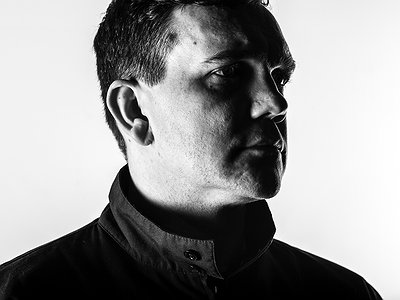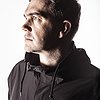Could you describe your creative process on the basis of a piece or album that's particularly dear to you, please? Where did the ideas come from, how were they transformed in your mind, what did you start with and how do you refine these beginnings into the finished work of art?
I start wanting to make one thing and end up making something completely different. The process to finish a track is different every time so there is not a set process that I can describe.
There are many descriptions of the ideal state of mind for being creative. What is it like for you? What supports this ideal state of mind and what are distractions? Are there strategies to enter into this state more easily?
I produce all the time, whether I am happy or sad, focussed or distracted. It was what I do and generally I enjoy doing it. It's like Kraftwerk describing themselves as 'music workers'. I make music, it's not some mystical dream state that I have to be in to make music. I go to the studio and I get to work.
How is playing live and writing music in the studio connected? What do you achieve and draw from each experience personally? How do you see the relationship between improvisation and composition in this regard?
They are very different , but essentially both solitary practices. You can be playing to 5,000 people and still feel alone and isolated on stage. Of course seeing how tracks by myself or others affect the reaction of the crowd influences me in the studio, but I would never run back to the studio on a Monday morning to make a track that sounded exactly like a track by someone else that people reacted to positively at the weekend.
How do you see the relationship between the 'sound' aspects of music and the 'composition' aspects? How do you work with sound and timbre to meet certain production ideas and in which way can certain sounds already take on compositional qualities?
They are completely linked. Sound design and composition generally happen simultaneously for me. Sounds lead you to search for other complimentary sounds just as a sound can inspire a certain type of arrangement.
Our sense of hearing shares intriguing connections to other senses. From your experience, what are some of the most inspiring overlaps between different senses - and what do they tell us about the way our senses work? What happens to sound at its outermost borders?
I'm a producer so my ears and what I hear is by far the most important thing to me. Everything else is secondary. I'm not opposed to ideas such as synaesthesia, but I've never experienced it myself.
Art can be a purpose in its own right, but it can also directly feed back into everyday life, take on a social and political role and lead to more engagement. Can you describe your approach to art and being an artist?
I make my music and when I feel the urge I will add a political or social element to the track, track title or artwork. It is what I do and I enjoy it, it is never a chore. Thank you for saying that I am an artist but I would never be so bold as to think of myself as one. In the history of electronic music there have only been a handful of artists. The bulk of people releasing electronic music right now could only be described as engineers. A generic but well produced track will always get a better response on the dance floor than an innovative but not so well produced track. That is what has been wrong with techno and also with the wider field of electronic (club) music in for many years.
It is remarkable, in a way, that we have arrived in the 21st century with the basic concept of music still intact. Do you have a vision of music, an idea of what music could be beyond its current form?
Why is it remarkable? All art forms develop very slowly apart from the occasional artistic or technological breakthroughs that change them forever. I don't have an idea of what is next for music, but something tells me it will be pretty similar to what has already happened over the last 10 or 15 years. A slow, incremental development rather than the rapid evolution of the late 80's to late 90's.



